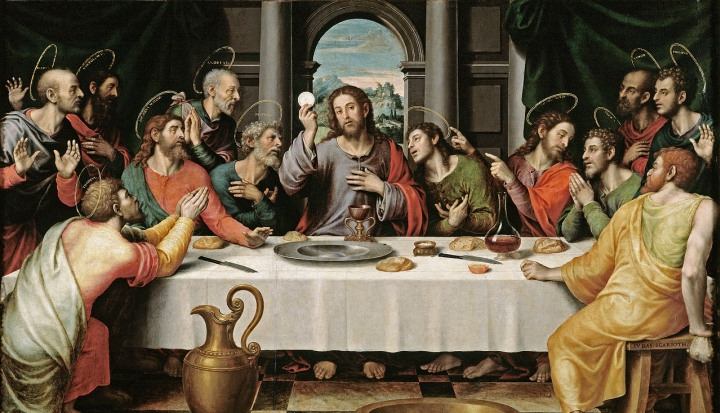Given how big the celebration of Christmas is compared to Easter, it might come as a surprise that for much of Christian history it wasn’t celebrated at all. One reason is the gospels where only two address Jesus’ birth, but all four his death. There is no indication that Jesus’s birth should be celebrated, but specific teaching (including Paul in I Cor. 11) by Jesus himself (e.g., Matt. 26) that his death should be. So it isn’t surprising it took three hundred years before his birth would be celebrated.
During those centuries the church didn’t think the incarnation was holiday (in the literal meaning of the term, holy day) material. At this time of year they celebrated the feast of Epiphany which is where the idea of the twelve days of Christmas comes from. We know this as the three kings, the Magi, visiting Christ (which probably happened when he was two years old) symbolizing that salvation was for all people. In those centuries of the church, births were not celebrated by Christians, rather it was the death or martyrdom of saints that was celebrated because of the death and resurrection of the Savior of the world.
As the centuries went on, some early church fathers thought the day of Christ’s birth should be celebrated, and “December 25, 336, marks the day Christians officially celebrated the first Christmas on Earth.” We know pagans in those early centuries had mid-winter celebrations in December, December 25 being specifically the day of “natalis solis invict” (the Roman birth of the unconquered sun), and the birthday of Mithras, the Iranian “Sun of Righteousness.” But when the Roman Empire became officially Christian, the church decided to appropriate these holidays for Christianity. In fact, Augustine (354-430) wrote, “We hold this day holy, not like the pagans because of the birth of the sun, but because of him who made it.” Is that beautiful or what!

There was a fourth century Bishop named Saint Nicholas, but it was a very long time before he became associated with Christmas and Santa Clause. It’s a fascinating history how the celebration of a generous saint became connected with jolly Old Saint Nick that slowly became Santa and the holiday we celebrate. It developed in the 19th century with a significant push from Charles Dickens who wrote A Christmas Carol 1843 and took his show on the road reading it to packed houses in America in the coming decades. (I learned a movie came out in 2017 called The Man Who Invented Christmas, which I am looking forward to watching this Christmas season.)

J. Gresham Machen, one of the great saints of the church (1881-1937) just five days before his death gave a radio address about the atonement. In it he expresses his gratitude about the celebration of Christmas:
[T]hank God for the Christmas season; thank God for the softening that it brings to stony hearts; thank God for the recognition that it brings for the little children whom Jesus took into His arms; thank God even for the strange, sweet sadness that it brings to us together with its joys, as we think of the loved ones who are gone. Yes, it is well that we should celebrate the Christmas season; and may God ever give us a childlike heart that we may celebrate it aright.
Then he discusses the contrast in the New Testament related to Christ’s birth and death, and why that contrast exists:
I think the answer is fairly clear. The birth of Jesus was important not in itself but because it made possible His death. Jesus came into this world to die, and it is to His death that the sinner turns when He seeks salvation for his soul.
This Christmas season as we give gifts with loved ones, let us remember the greatest gift was God becoming man to die in our place to reconcile himself to his people. He was given the name Jesus before he was born specifically for that reason because as Joseph was told, “he will save his people from their sins.”


Recent Comments